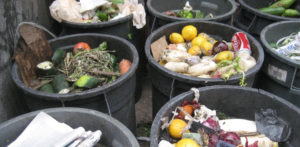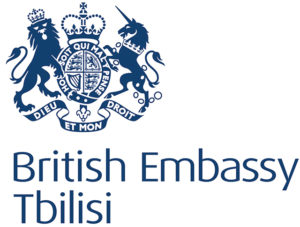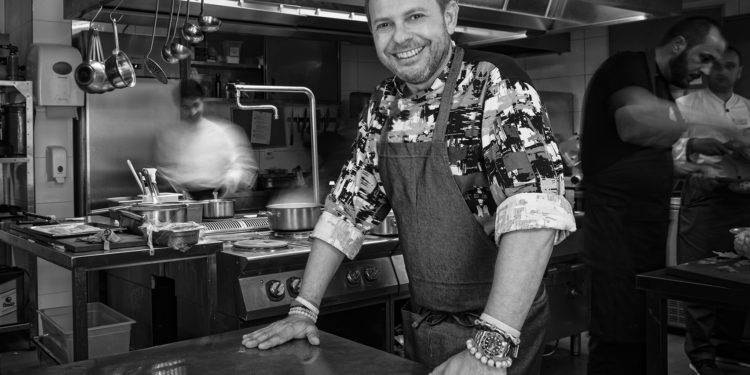“It would be nice to give life to a non-profit organization that can collect food waste and transform it into meals to be dispatched to families who need help.” – Chef Enzo Neri
One-third of food produced each year is lost or wasted. Food waste is caused, among other things, by overproduction, spoilage, and overbuying, and is said to be one of the biggest contributors to climate change, accounting for 8% of the greenhouse gas emissions. Further, people are less likely to buy and consume fruits and vegetables due to their aesthetic or physical irregularities. As such, one third of the fruits and vegetables globally do not make it to our grocery store shelves because they are rejected to avoid complaints of bad quality by the consumers. Added to this the fact that, as a result of the pandemic, poverty levels are expected to rise to up to 125 million, and 2020 marks the most severe increase in global food insecurity, impacting vulnerable households in almost every country. And yet we continue to waste a third of perfectly edible food.
GEORGIA TODAY, in partnership with CENN, is running a joint awareness-raising campaign to try and turn things around with Georgia’s food waste issue. As part of the campaign, we are talking to those in the know – chefs – to find out their views on the food waste problem, what they are doing to combat it, and what they suggest could be done in future. Our first interviewee is Georgia-based Italian Chef Enzo.
Chef Enzo says he discovered cooking quite late. He was already thirty, and while “others had been working in the kitchen for 15 years by that age,” he immediately recognized it as the path he needed to be on in life. For the next 20 years, he dedicated himself to the culinary industry, holding a range of senior positions within the field, from Head Chef to consultancy design and management of new dining experiences for private clients, around the world, from Italy to Georgia through London, Dubai and New York.
“I’m passionate about food,” he says. “Cooking, eating, sharing, experimenting and developing it. It’s what drives me to be the best chef and leader I can be. My motto goes: Cooking has never been my ambition, it’s just the way I express myself. I get inspiration from various sources – culture, music, history, arts, everyday life and the people themselves. Preparing a dish is like creating a sculpture or a drawing, you play with colors, shapes and at the same time add flavors.
What got you to where you are today?
Passion, a high sense of duty, self-development, curiosity, dedication and hard work.
What are you working on now (and where)?
I’m working for Maqro Group, branding Dinehall Restaurant & Cafe on Rustaveli Avenue in Tbilisi. I’m currently the brand Chef of DineHall for Maqro Group, and the Brand Chef of the Mercure Hotel Old Town and Ibis Styles branding, and within the next two months, I will open a new rooftop restaurant Tiki Lounge on the roof of the Ibis.
In your work as a chef, past and present, how did/do you handle potential food waste?
I always worked for private companies and corporates, so believe me, they are very attentive when it comes to wastage of goods, because it would directly affect the food costs. But if you take into consideration day-to-day operation, I ensure that we only purchase the ingredients that our business will use. It can be tempting to buy in bulk if your supplier has a good deal on, but doing so can leave you with more food than you need, which will go to waste. I make sure I correctly store my food, checking that fridges and freezers are working properly, checking the temperatures and keeping tidy and cleaning all the storage spaces, which involves accurate stock rotation. We also label every single product, and we keep a stock inventory on a monthly basis. We also train employees how to reduce waste, using preparation leftovers for staff food, and we give our customers the opportunity to take their leftovers home.
From your time working as a chef in Georgia, what has been your experience with regards to food waste?
I’ll be honest with you. I was working a year and half within a company which was actually part of an international chain, and I was shocked how much food was wasted from the banqueting events. Personally, as I said above, I’m very attentive and sensitive to this matter. Back in NYC for example, for Christmas, we used all the leftovers and the complimentary food gifted by suppliers to prepare over 150 kg of meals to be delivered to the Bowery Mission in East Village. I’ve done that kind of charity a few times in the past.

Where do you buy the ingredients you use in your kitchen? Do You Choose Aesthetically Pleasing Fruit & Veg, Or are you happy to buy “ugly”? Same question for your restaurant and in your personal life.
I buy my ingredients from suppliers who deliver directly to our premises. Funny though, the ugly ones are more related to the organic products, because it means they have grown naturally. For me, the quality and the state of the products are important, because I have to ensure I can make a product which is suitable for the customers to consume. But also, the good quality and state of a product is important to ensure a better shelf life, because as we said above, it reduces the possibility of wastage.
40% of waste in Georgia is organic waste, a large portion of which is food. How do you suggest we reduce this percentage?
With all the careful steps I mentioned above. Also, we should use food waste to make other resources, like converting it into gas and creating a source of renewable energy. We could use ugly fruits and vegetables, regardless of the size and shape, for products as such as jams, chutneys, snacks, and so on.
What work have you done in the past/will you do in future to help the vulnerable, using your skills as a chef?
In the past, I did those charity events back in NYC, and also in London. In 2019, I cooked for 80 people, including 20 kids, in Dzegvi shelter with the collaboration of American Friends of Georgia and Nino Gagua. In the future, I will keep implementing what I have been doing, trying to prepare a new generation of chefs that are sensitive to wastage; empowering everyone who deals with restaurants and food production. I am always open to new initiatives in that sense, although I have found it pretty difficult finding support.
Any further comments on fighting food waste in Georgia?
It would be nice to give life to a non-profit organization that can collect food waste and transform it into meals to be dispatched to families who need help.
Interview by Katie Ruth Davies
Related: CENN with the Support of the British Embassy Launches a New Project on Food Waste
















